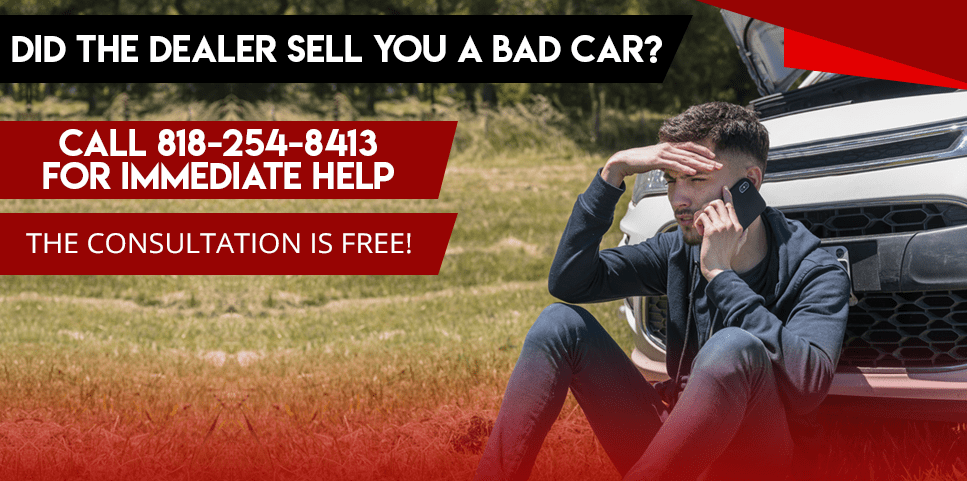
Buying a car is a significant investment, and unexpected fees can turn an exciting purchase into a frustrating experience. While it’s common for car dealerships to include some additional charges, not all fees are legitimate or legal. This raises an important question: Can dealerships really add fees to the final price of your car?
In California, car buyers need to be aware of their rights when it comes to dealer fees. Some fees are standard and required by law, but others may be unnecessary or even fraudulent. Understanding what fees car dealers can legally add on is crucial for making an informed decision and protecting yourself from potential finance scams.
This article will explore the various fees that dealerships might include in your car purchase, which ones are legitimate, and what to do if you suspect a dealership has added unauthorized charges to your contract. We’ll also discuss your rights as a consumer and the steps you can take if you believe you’ve been a victim of auto fraud in California.
Common Legal Fees in Car Purchases
When buying a car in California, it’s important to understand that certain fees are standard and legally required. These charges are separate from the vehicle’s base price and cover various aspects of the purchase process. Here are some common legal fees you can expect to see on your car purchase contract:
Documentation Fee (Doc Fee)
The documentation fee, often called a “doc fee,” covers the dealership’s cost of processing your paperwork. In California, this fee is capped by law to protect consumers from excessive charges. While the exact amount can vary, it typically ranges from $55 to $85. Always check the current legal limit, as it may change over time.
Sales Tax
Sales tax is unavoidable when purchasing a car in California. The rate varies depending on your location, as it includes state, county, and sometimes local taxes. Generally, you’ll pay between 7.25% and 10.25% of the vehicle’s price. Remember, this is calculated on the final negotiated price, not the sticker price.
Registration and Title Fees
These fees are set by the California Department of Motor Vehicles (DMV) and cover the cost of registering your new vehicle and transferring the title to your name. The amount depends on factors like the car’s value, weight, and your county of residence. While the dealer collects these fees, they’re passed directly to the DMV.
Emission Testing Fees
California has strict emissions standards. Depending on the vehicle and your location, you might see a charge for a smog check or certification. This ensures your new car meets the state’s environmental requirements.
Destination Charges
This fee covers the cost of transporting the vehicle from the manufacturer to the dealership. It’s set by the manufacturer, not the dealer, and is usually the same for all dealerships within a region. You’ll typically see this listed on the vehicle’s window sticker.
Understanding these legal fees helps you budget more accurately for your car purchase. However, it’s crucial to review each charge on your contract carefully. While these fees are standard, their amounts should be clearly disclosed and explained by the dealership before you sign any agreement. If you notice any unfamiliar charges or feel the fees are excessive, don’t hesitate to ask for clarification.
Potentially Fraudulent or Unnecessary Fees to Watch Out For
While some fees are legitimate and required when buying a car, dishonest dealerships might try to slip in extra charges that are either unnecessary or outright fraudulent. Being aware of these potential add-ons can save you money and help you avoid falling victim to auto fraud. Here are some questionable fees to be on the lookout for:
Excessive Administrative or Processing Fees
Although dealerships can charge reasonable administrative fees, some may inflate these charges well beyond what’s necessary. In California, while doc fees are capped, other administrative fees might be added. Be wary of vague terms like “processing fee” or “dealer fee” that seem unusually high.
Undisclosed “Dealer Prep” Charges
Dealer preparation should be included in the vehicle’s price or the destination charge. If you see an additional fee for preparing the car for sale, question it. This could be an attempt to charge you for services that should already be covered.
Inflated Advertising Fees
Some dealers might try to pass their advertising costs onto you. While a small advertising fee isn’t uncommon, large charges for this purpose should raise a red flag. Remember, you’re not responsible for funding the dealership’s entire marketing budget.
Unnecessary Extended Warranties or Service Contracts
While extended warranties aren’t inherently fraudulent, they’re often overpriced at dealerships and may be unnecessary, especially for new cars. Be cautious of pressure to buy these add-ons, and always read the fine print to understand what’s actually covered.
VIN Etching Without Consent
Vehicle Identification Number (VIN) etching can be a legitimate anti-theft measure, but some dealers perform this service without asking and then charge a premium for it. If you didn’t request this service, you shouldn’t have to pay for it.
To protect yourself, carefully review every line item on your contract before signing. Don’t be afraid to ask questions about any fee you don’t understand or that wasn’t previously discussed. If a charge seems suspicious, request an explanation in writing.
If you notice any of these questionable fees after you’ve already signed the contract, or if the dealer refuses to remove them upon your request, you may have grounds for legal action. In such cases, it’s advisable to consult with a consumer protection attorney who specializes in auto fraud cases.
Remember, a reputable dealership should be transparent about all fees and willing to explain each charge. If you feel pressured or notice a lack of clarity in the pricing, consider it a warning sign. Trust your instincts and be prepared to walk away if something doesn’t feel right. Your vigilance in reviewing fees can help ensure a fair deal and protect you from potential auto fraud.
How to Protect Yourself from Auto Fraud
Buying a car can be exciting, but it’s important to stay vigilant to avoid potential auto fraud. Here are some practical steps you can take to protect yourself during the car-buying process:
Research Before Visiting the Dealership
Before setting foot in a dealership, research the fair market value of the car you’re interested in. Websites like Kelley Blue Book or Edmunds can provide reliable estimates. Also, familiarize yourself with common fees in your area so you can spot any unusual charges.
Get All Promises in Writing
Verbal assurances can be easily forgotten or denied later. If a salesperson makes any promises about the vehicle or the deal, ask for these to be put in writing. This includes any agreements about repairs, features, or financial terms.
Read the Entire Contract Carefully
Don’t feel pressured to sign quickly. Take your time to read through the entire contract, including the fine print. If there’s something you don’t understand, ask for an explanation. A reputable dealer will be happy to clarify any confusing terms.
Calculate the Total Cost
Add up all fees, charges, and the price of the car to get the total cost. Compare this to the initially quoted price. If there’s a significant difference, ask for a detailed explanation of each additional charge.
Be Prepared to Walk Away
High-pressure sales tactics are a red flag. If you feel uncomfortable or pressured, it’s okay to leave. Remember, there are many dealerships and cars available. Don’t let the fear of missing out push you into a bad deal.
Keep All Documentation
Maintain a paper trail of your car purchase. Keep copies of advertisements, emails, the contract, and any other relevant documents. These could be crucial if you need to dispute charges later.
Consider Getting an Independent Inspection
For used cars, an inspection by an independent mechanic can reveal potential issues the dealer might not have disclosed. This small investment could save you from costly repairs down the line.
Know Your Rights as a Consumer
Familiarize yourself with California’s consumer protection laws related to car buying. For example, the state’s “cooling-off” period doesn’t apply to car purchases, but there are laws protecting you from fraudulent practices.
By following these steps, you can significantly reduce your risk of falling victim to auto fraud. Remember, a legitimate dealer will respect your need for transparency and time to make an informed decision. If you feel something isn’t right, trust your instincts and don’t hesitate to seek advice from a consumer protection attorney who is experienced in auto fraud cases.
Protecting Your Rights in Car Purchases
Buying a car in California involves navigating various fees – some legal, others potentially fraudulent. We’ve covered common legitimate charges and highlighted questionable fees to watch out for. Understanding these distinctions is key to making informed decisions and avoiding auto fraud.
Remember to research thoroughly, get promises in writing, carefully review contracts, and question any unclear charges. You have the right to a fair, transparent car-buying experience.
If you suspect auto fraud or are dealing with unexplained fees, Consumer Action Law Group is here to help. Our experienced attorneys specialize in protecting consumers’ rights in auto fraud cases. We offer free consultations to review your situation and discuss your options.
Don’t let questionable dealer practices cost you. Contact Consumer Action Law Group today for your free consultation and take the first step towards resolving your auto fraud concerns.












